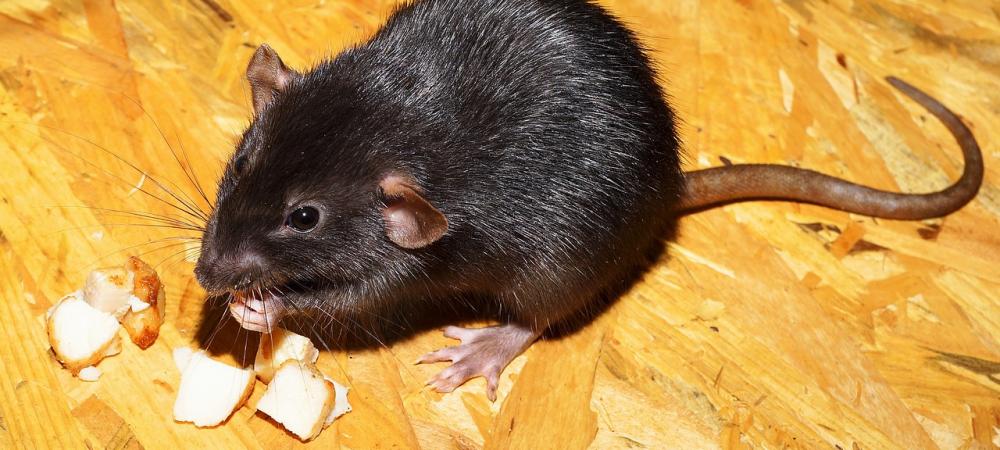The Dangers of Rodents: Health Risks and Property Damage

Rodents pose serious risks to your health, your family, and your home. Whether you’re dealing with mice in the pantry or rats in the attic, the dangers go far beyond chewed-up cereal boxes.
In this blog, we’re breaking down exactly how rodents can harm both your health and your property. From disease transmission to structural and electrical damage, here’s what you need to know to stay protected.
Health Risks Associated with Rodents
Direct Transmission of Diseases
Rodents can carry and transmit several serious illnesses directly to humans, often through contaminated droppings, urine, saliva, or nesting materials:
- Hantavirus: Transmitted through aerosolized particles from rodent droppings, urine, or saliva—especially in enclosed spaces like attics or garages.
- Salmonellosis: Caused by eating food or touching surfaces contaminated with rodent droppings or urine.
- Leptospirosis: Spread through contact with water or food contaminated by rodent urine.
- Rat-bite Fever: Transmitted through rodent bites, scratches, or consuming contaminated food or water.
Indirect Transmission (via parasites)
Rodents can also carry parasites that spread other dangerous diseases:
- Fleas: Can carry diseases like plague and murine typhus.
- Ticks: Known to transmit Lyme disease, Rocky Mountain spotted fever, and more.
- Mites: Can trigger skin irritation and allergic reactions in sensitive individuals.
Allergies and Asthma
Even if rodents don’t make you sick, they can still impact your indoor air quality. Their waste and dander are known allergens, particularly for children and those with asthma or respiratory sensitivities.
Food Contamination
Rodents are notorious for invading kitchens and pantries. They:
- Gnaw into food packaging, rendering your groceries unsafe.
- Leave droppings and urine on food preparation surfaces and stored food, spreading bacteria and illness.
Property Damage Caused by Rodents
Health risks aren’t the only concern. Rodents are also destructive by nature. Their sharp teeth never stop growing, so they constantly gnaw on anything and everything.
Structural Damage
- Chewing on wood beams, baseboards, and furniture can weaken your home’s structure.
- Rodents often create holes in walls, floors, and ceilings to access new areas of your home.
- In attics and crawlspaces, insulation loses its effectiveness when rodents contaminate it with waste or shred it for nesting.
Electrical Damage (Fire Hazard)
This is one of the most dangerous threats rodents pose. They frequently chew through electrical wires, which can:
- Cause shorts and power outages
- Lead to house fires, making this risk especially urgent and serious
Plumbing Damage
Rodents don’t stop at wires, they’ll also chew on plastic pipes:
- Leading to leaks, water damage, and even mold growth
- Causing expensive plumbing repairs and home damage
Contamination and Odor
Rodent infestations bring a lingering smell you can’t ignore:
- Droppings and urine build up, producing strong, foul odors over time
- Stored belongings like clothing, papers, or heirlooms often suffer irreversible damage
Landscaping Damage
Rodents don’t limit their destruction to the inside of your home:
- Burrowing in gardens and lawns can disrupt roots and landscaping
- They may chew through or consume garden produce and plants
Recognizing the Signs of Rodent Activity
Rodents are sneaky, but the signs of their presence are hard to miss if you know what to look for:
- Small, dark droppings in drawers, pantries, or attic spaces
- Gnaw marks on furniture, wires, or food packaging
- Shredded nests made of paper, insulation, or fabric
- Scratching or squeaking sounds, especially at night
- Pets barking or pawing at walls, indicating hidden activity
What to Do If You Suspect Rodents
If you think rodents may be in or around your home, act quick but act smart. DIY traps and repellents often fall short, and direct contact with rodents or droppings can be dangerous.
The safest approach is to:
- Avoid touching droppings or nests directly
- Keep food sealed and surfaces clean
- Seal up potential entry points when possible
- Call a professional rodent control company for safe inspection and removal
Get Professional Help From Myles Pest Services
Rodents are a real threat to your health, your home, and your peace of mind. From disease transmission to property damage and fire hazards, the risks are too great to ignore or gamble with.
At Myles Pest Services, we’ve been putting an end rodent infestations since 1989. Our expert team knows how to safely remove rats, mice, and squirrels, and prevent them from coming back. With our services, you can stop stressing and start feeling safe in your own home again.
Don’t wait until the damage is done, contact Myles Pest Services today for effective, professional rodent control you can trust.

